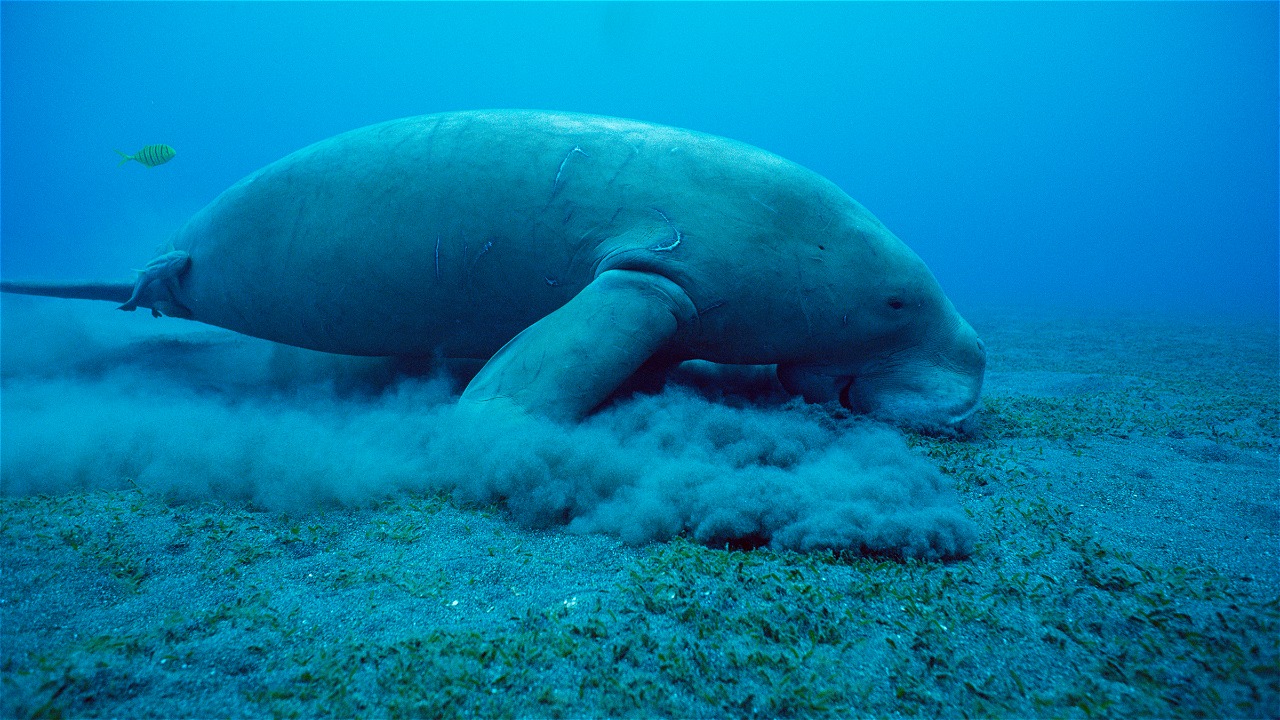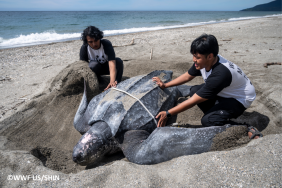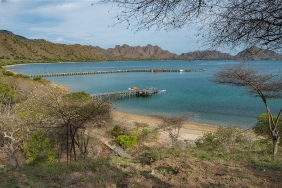CALL FOR PAPERS: "DUGONG AND SEAGRASS HABITATS" INAUGURAL SYMPOSIUM IN INDONESIA
By: Casandra Tania (Marine Species Officer,WWF-Indonesia) and Dwi Suprapti (Marine Species Conservation Coordinator, WWF-Indonesia)
Dugong (Dugong dugon) or commonly known as Duyung is one of 35 species of marine mammals found scattered in Indonesian waters, especially in seagrass habitats. Although large with a weight of up to 600 kg, this nursing marine animal has a friendly behavior and lives in special association with seagrass ecosystems as its feeding habitat.
Dugong has a complex life threat. The dugong is naturally slow to reproduce, taking 10 years to mature and 14 months to give birth to a new individual at intervals of 2.5 - 5 years. Another threat is the accidental capture of dugong by fishing gear (bycatch), massive hunting for the utilization of dugong meat, fangs and tears which are allegedly of high economic value.
The phenomenon of stranding often ends in the death of dugong, thus affecting its population in nature. In addition, habitat degradation and pollution are thought to have caused the destruction of seagrass beds as a feeding habitat for dugongs. Therefore, the dugong population is so threatened that it requires stronger protection efforts.
Nationally, dugongs are protected through Law No.5 of 1990 concerning the conservation of biological resources and ecosystems and Law No. 31 of 2004 concerning fisheries. While internationally dugong has been listed in the 'Global Red List of IUCN' as 'Vulnerable to extinction' or vulnerable to extinction and has also been included in the Appendix I CITES (the Conventionon International Trade in Endangered Species of Wild Fauna and Flora)which means dugong body parts cannot be traded in any form.
Although nationally and internationally the dugong has been designated as a protected animal, conservation efforts have not been optimized. The lack of data and information on both dugong and its habitat has limited conservation actions related to dugong and seagrass in Indonesia.
To gather the latest information on the biology, ecology, threats, and utilization of dugong and its seagrass habitat, the Ministry of Marine Affairs and Fisheries together with the Indonesian Institute of Sciences, Bogor Agricultural University, and WWF-Indonesia invite academics, researchers, and practitioners to contribute by submitting abstracts for the conservation of Dugong populations in Indonesia. Four selected papers will be sent to attend the National Symposium on Dugong and Seagrass Habitat in Bogor on April 20-21, 2016. (Registration via: http://goo.gl/forms/xMBXKrToLc)
The symposium is expected to assess the current status of dugong populations and management and seagrass habitats, initiate and strengthen the network of dugong observers in Indonesia, and develop recommendations and technical guidelines on survey methods and monitoring of dugong populations and seagrass habitats.
For policy makers, academics, researchers, practitioners, and observers of dugong and seagrass, let's join this symposium! Abstract submission is open until March 25, 2016. Be part of the initiative to conserve dugong populations and seagrass habitats in Indonesia.




